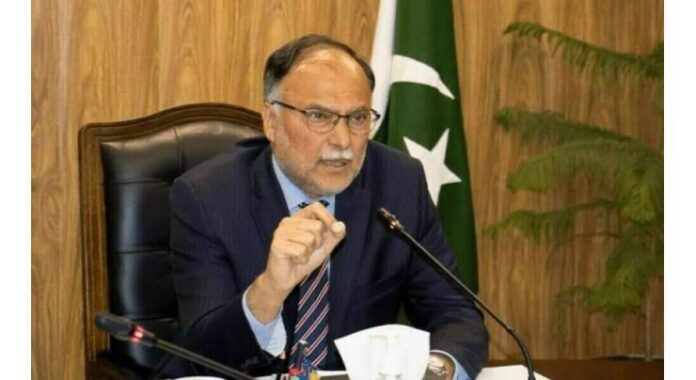Federal Minister for Planning, Development and Special Initiatives Prof Ahsan Iqbal on Monday called on Pakistan’s civil servants to take a leading role in transforming the country through export-led growth, digital governance, climate resilience, improved infrastructure delivery, and inclusive development.
Speaking at the inauguration of a newly upgraded classroom at the Pakistan Administrative Staff College (PASC), part of the National School of Public Policy (NSPP) in Lahore, the minister also formally launched the 123rd National Management Course. Addressing participants, he introduced the STAR governance model—Stable, Transparent, Agile and Responsible—as a reform framework to guide the evolution of the civil service.
Ahsan Iqbal urged public officials to shift from a procedure-bound culture to a mission-driven bureaucracy that delivers results. He emphasized that Pakistan was at a critical juncture, requiring data-informed decision-making, adoption of digital tools, and robust institutional accountability. Stressing the need for policy continuity and institutional stability, he said that transparency, responsiveness, and responsible management of public resources must become foundational values of governance.
He praised the civil service’s role in the successful implementation of the China-Pakistan Economic Corridor (CPEC), saying that officers from various ministries had shown unity, commitment, and professionalism throughout all phases of the project.
Outlining the government’s long-term economic vision, the minister said the ‘URAAN Pakistan’ roadmap aims to transform Pakistan into a $1 trillion economy by 2035. He explained that the strategy revolves around five core pillars: boosting exports, digitizing governance under ‘E-Pakistan’, addressing environmental priorities, improving energy and infrastructure, and advancing equity and empowerment.
Quoting Islamic principles, Ahsan Iqbal reminded the participants that public service in Islam is a duty, not a privilege. He encouraged officers to approach their training with a sense of service, creativity, and deep national commitment, noting that a results-driven and reformed civil service was essential to Pakistan’s future.




